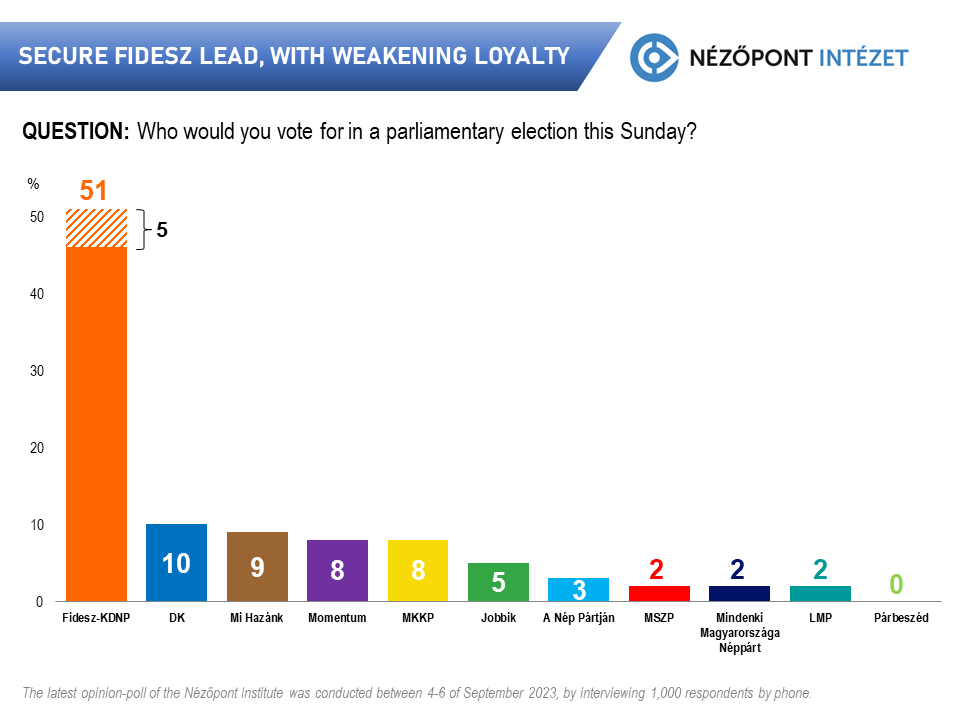According to the latest opinion poll conducted by the Nézőpont Institute. Fidesz is leading the party race (51 percent) ahead of the autumn parliamentary session. The survey reveals that there is a tight competition between the Democratic Coalition (10 percent) and the Our Homeland Movement (9 percent) for the title of the strongest opposition party. Momentum (8 percent) is still lagging behind.
The political autumn is about to begin. The Nézőpont Institute has conducted a survey to find out how the balance of political power has changed since the spring.

The Fidesz-KDNP continues to lead the party race, and similarly to the February figures, one in two Hungarian voters would vote for the governing parties in September as well. However, the loyalty of their voters has weakened. If an election were held “this Sunday”, 51 percent of Hungarians would presumably vote for Fidesz, but one in ten of them (5 percent of voters) are no longer sure, they would only probably and not definitely support the governing party. The partial uncertainty of Fidesz voters does not mean that they would turn away or vote for another party. The reason for this could be the inflation and the fall in real wages caused by the sanctions and the war.
The current support of the governing parties is more than 40 percentage points higher than the support of the strongest opposition party, the Democratic Coalition, which stands at 10 percent, and almost double the support of the left-wing party alliance of 2022, which stands at 27 percent. However, in addition to the aggregated results of the left-wing parties that once formed the joint list, it is worth paying attention to the new parties. Péter Jakab’s party would get 3 percent of the votes, and the party that emerged from the Márki-Zay movement 2 percent. It should also be noted that the Two-Tailed Dog Party, which criticises the left opposition parties from the left, would also get 8 percent of the votes.
There is a tight competition between the Democratic Coalition (10 percent) and the Our Homeland Movement (9 percent) for the title of the strongest opposition party, and Ferenc Gyurcsány’s party is only one percentage point ahead of László Toroczkai’s movement (10 and 9 percent), closely followed by Momentum (8 percent), which seems to be stronger than in the spring, but not enough to threaten the leading position of the Gyurcsány-party.
Currently, standing alone in the elections would be fatal for the parties led by Péter Jakab and Péter Márki-Zay (3 and 2 percent), as well as for MSZP (2 percent), LMP (2 percent) and Párbeszéd (0 percent). Therefore, it is very likely that in the near future some of them, like the co-president of MSZP, will raise the idea of a joint list before the European Parliament elections.
Methodology
The opinion-poll of the Nézőpont Institute published before the spring session of the Parliament was conducted between 20 and 22 of February, and the latest opinion-poll of the Institute was conducted between 4 and 6 of September, by interviewing 1,000 respondents by phone. For all surveys, the sample is representative of the adult population (18 years and older) by gender, age, region, type of settlement and education. In case of a sample size of 1000 respondents and a confidence level of 95 percent, the sampling error is ± 3.16 percent. Respondent base = Hungarian voters, respondents who are willing to vote in the elections.
